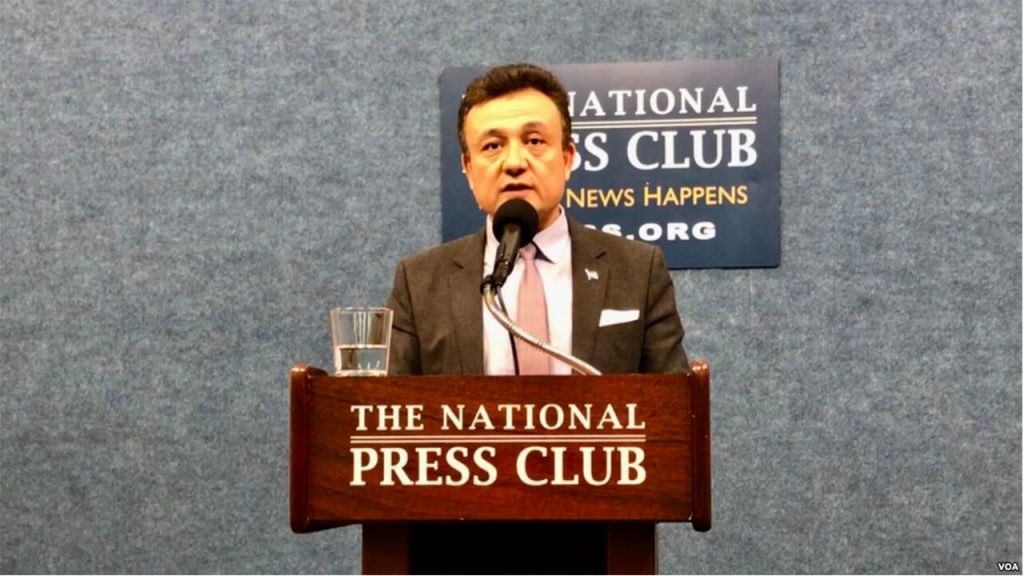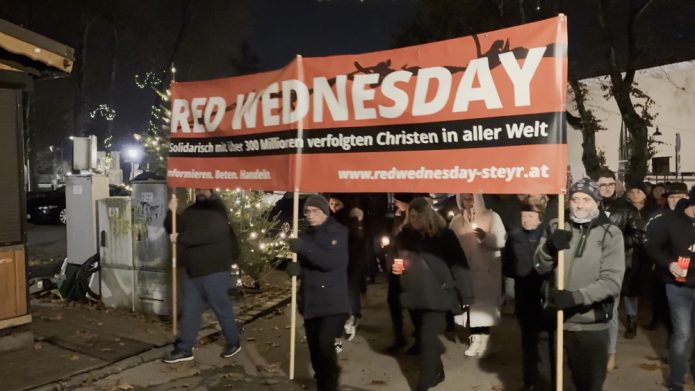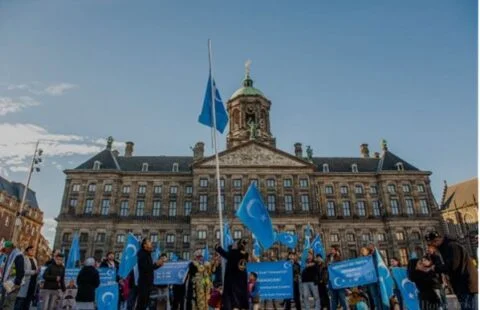Prominent exiled Uyghur activist Dolkun Isa said Wednesday that a “Red Notice” alert for his arrest, which was recently removed by international policing organization INTERPOL, is “just one example” of how China’s government is using the alleged threat of terrorism to silence its critics around the world.

The president of the Munich-based World Uyghur Congress told reporters at the National Press Club in Washington that his case, which was closed last month after nearly two decades, demonstrates the need for countries and international policing mechanisms to reject efforts by authoritarian governments to target dissidents abroad.
“My case is just one example of the Chinese government’s campaign to use the narrative of terrorism and extremism to silence any criticism and to justify its own reign of terror in my home country,” he said, referring to East Turkestan—the name preferred by many ethnic Uyghurs for their historic homeland, now ruled by China and known as the Xinjiang Uyghur Autonomous Region.
“The resolution of the INTERPOL case, after 20 years, provides one small example of what must be done to stand up for what is right. People in free societies need to work together to push back against the Chinese government’s shocking tactic of intimidating human rights defenders living in free countries.”
Isa called on democratic governments to “break their silence” about Beijing’s targeting of dissidents in their countries and urged them to work together with civil society groups to “strengthen global institutions and uphold universal values with respect to human rights and liberty.”
In February, INTERPOL confirmed that it deleted a “Red Notice”—an international wanted person alert—for Isa, who fled China in the mid-1990s, for his involvement in peaceful Uyghur student protests in the late 1980s.
Isa, who was granted refugee status in Germany in 1996 and later gained German citizenship, learned in 1999 that China had issued a Red Notice against him, demanding his arrest and extradition back to China to face charges.
As a result of the alert, Isa had faced harassment—including detention and arrest—by authorities in South Korea, India, the U.S., Turkey and Italy while advocating for human rights for the Uyghur people.
As recently as July last year, China’s Ministry of Foreign Affairs had referred to the activist as “a terrorist wanted under the red notice of Interpol and by the Chinese police.”
Extraterritorial harassment
Speaking after Wednesday’s press conference, moderator Louisa Greve applauded INTERPOL for creating a new system that allows it to review the information in its databases and working to prevent activists such as Isa from becoming the subjects of politically motivated arrest alerts.
She told RFA’s Uyghur Service that despite the election of Chinese Deputy Minister of Public Security Meng Hongwei as president of INTERPOL in 2016, “all international organizations work on the basis of carrying out the spirit of the Universal Declaration of Human Rights, and Interpol is no exception.”
Sophie Richardson, China director for New York-based Human Rights Watch, called the removal of Isa’s Red Notice “a victory for anybody who has been unfairly or arbitrarily listed by an organization that really isn’t accountable to the public,” noting that INTERPOL “often recycles baseless legal warrants from governments that have no real rule of law, like China.”
She said that “long-time advocacy,” both by Dolkun and organizations that helped him, was responsible for the removal of his arrest alert, as well as “some exposure of how China is abusing the Red Notice system inside and outside the country.”
“I think, actually, in a way, having Meng Hongwei—as very senior Chinese police official—at the head of Interpol has drawn more scrutiny of the organization and how it works in hopefully a positive way,” she said.
Rebecca Shaeffer, senior legal and policy officer for UK-based Fair Trials, called Isa’s case “low hanging fruit” because of how publicized it was, but warned that “many, many activists and ethnic minorities and journalists are suffering in silence with cases that are not so high profile.”
“They don’t have champions—they don’t have the name recognition that INTERPOL was able to use to gain clarity on the fact that this was a politically motivated case,” she said, noting that “for other cases it won’t be so clear and much more legal advocacy will be necessary.”
“We should also remember that it’s only one case among many, and that the situation of extraterritorial harassment of activists and their families by China continues and it’s going to take more than one application and one Red Notice deletion to stop that.”
Repressive measures
Since Xinjiang party chief Chen Quanguo was appointed to his post in August 2016, he has initiated unprecedented repressive measures against the Uyghur people and ideological purges against so-called “two-faced” Uyghur officials—a term applied by the government to Uyghurs who do not willingly follow directives and exhibit signs of “disloyalty.”
China regularly conducts “strike hard” campaigns in Xinjiang, including police raids on Uyghur households, restrictions on Islamic practices, and curbs on the culture and language of the Uyghur people, including videos and other material.
While China blames some Uyghurs for “terrorist” attacks, experts outside China say Beijing has exaggerated the threat from the Uyghurs and that repressive domestic policies are responsible for an upsurge in violence there that has left hundreds dead since 2009.
Source: Copyright © 1998-2016, RFA. Used with the permission of Radio Free Asia, 2025 M St. NW, Suite 300, Washington DC 20036. https://www.rfa.org.












